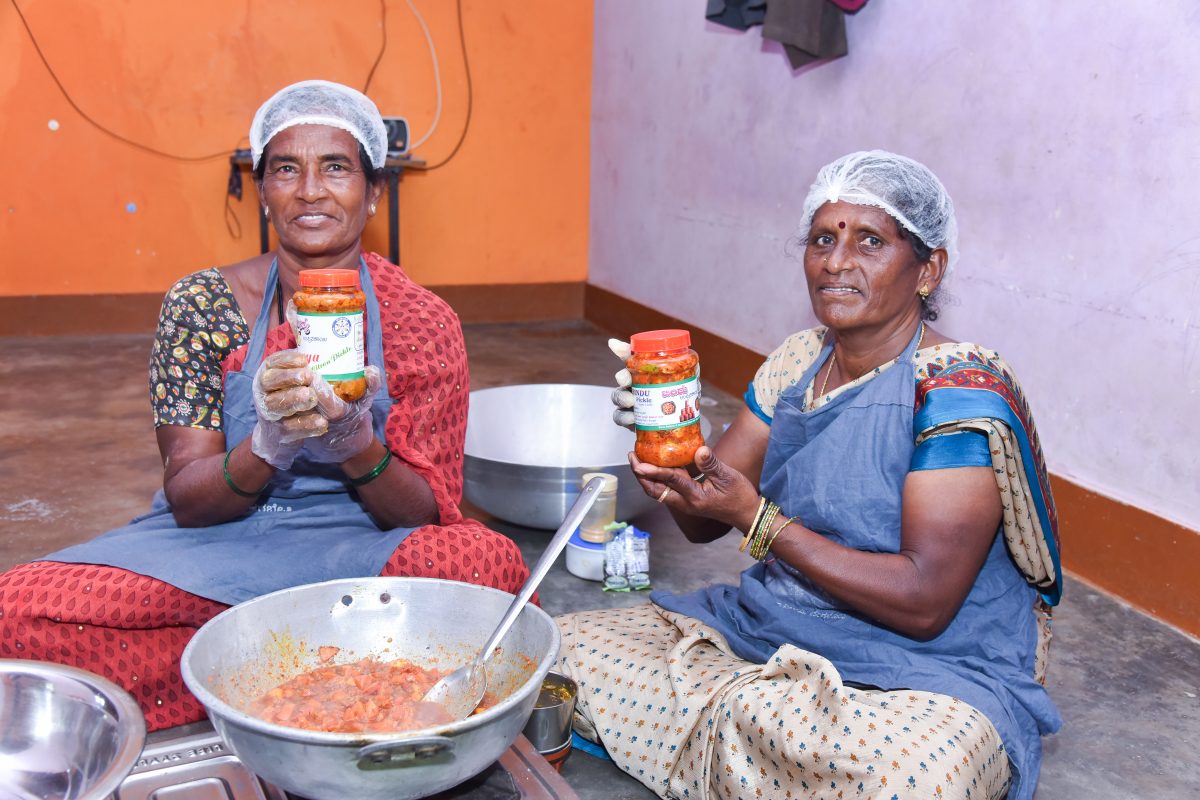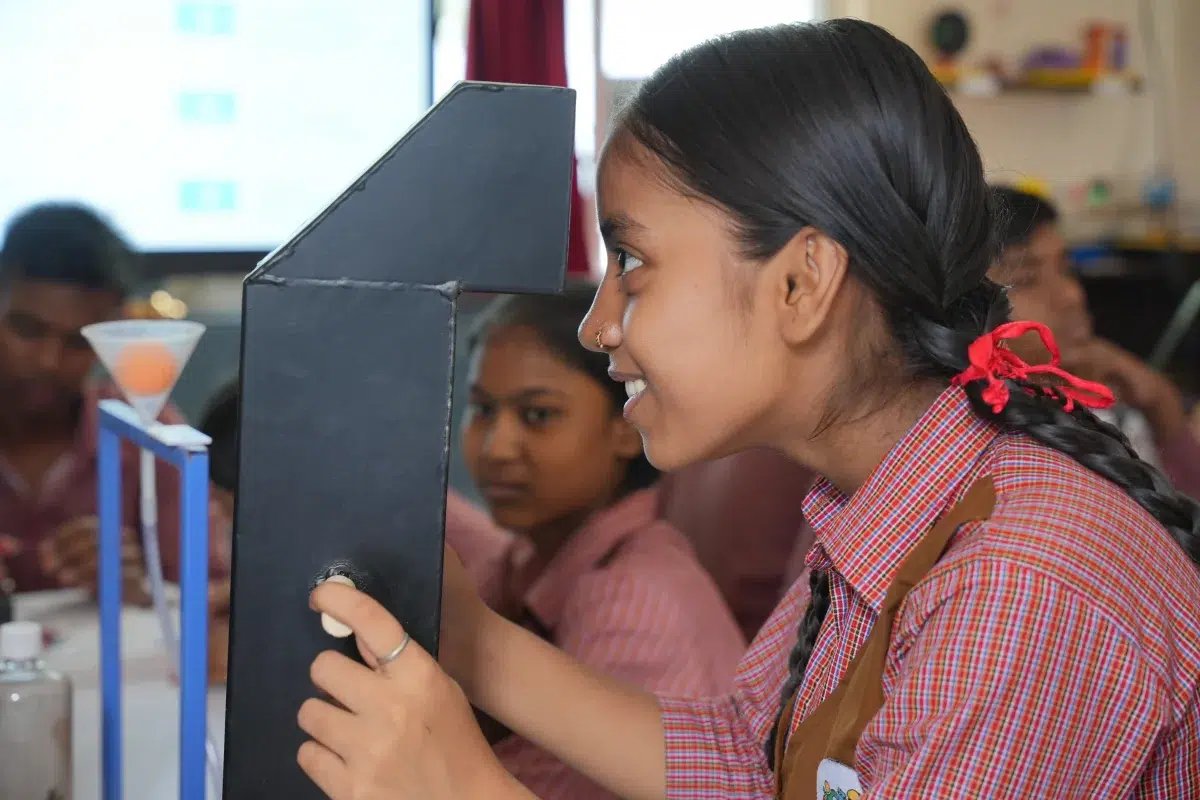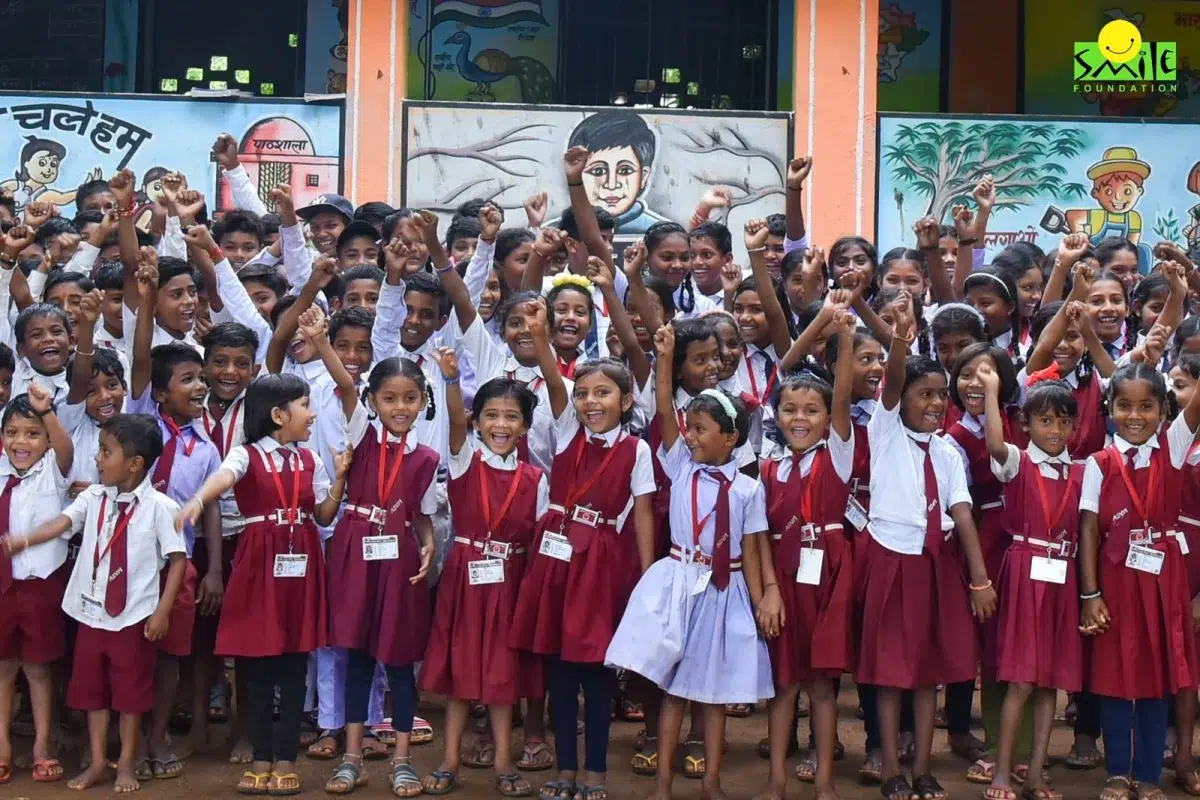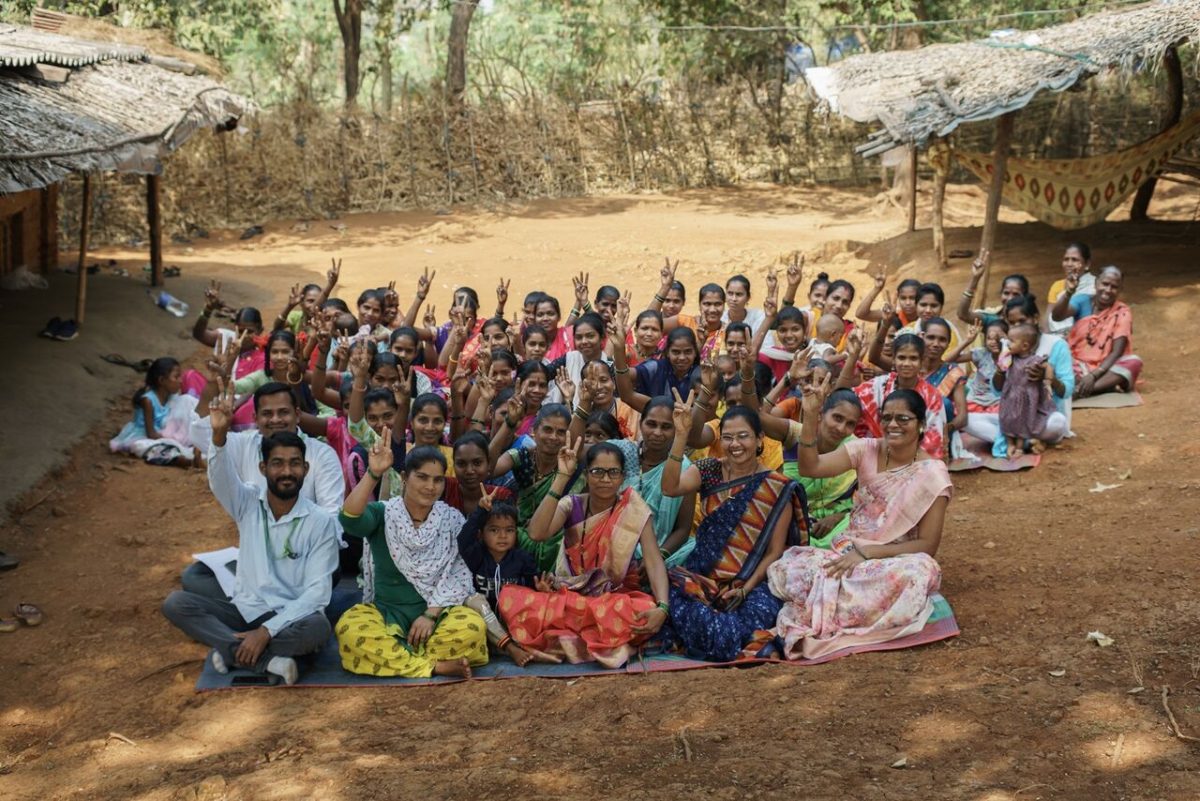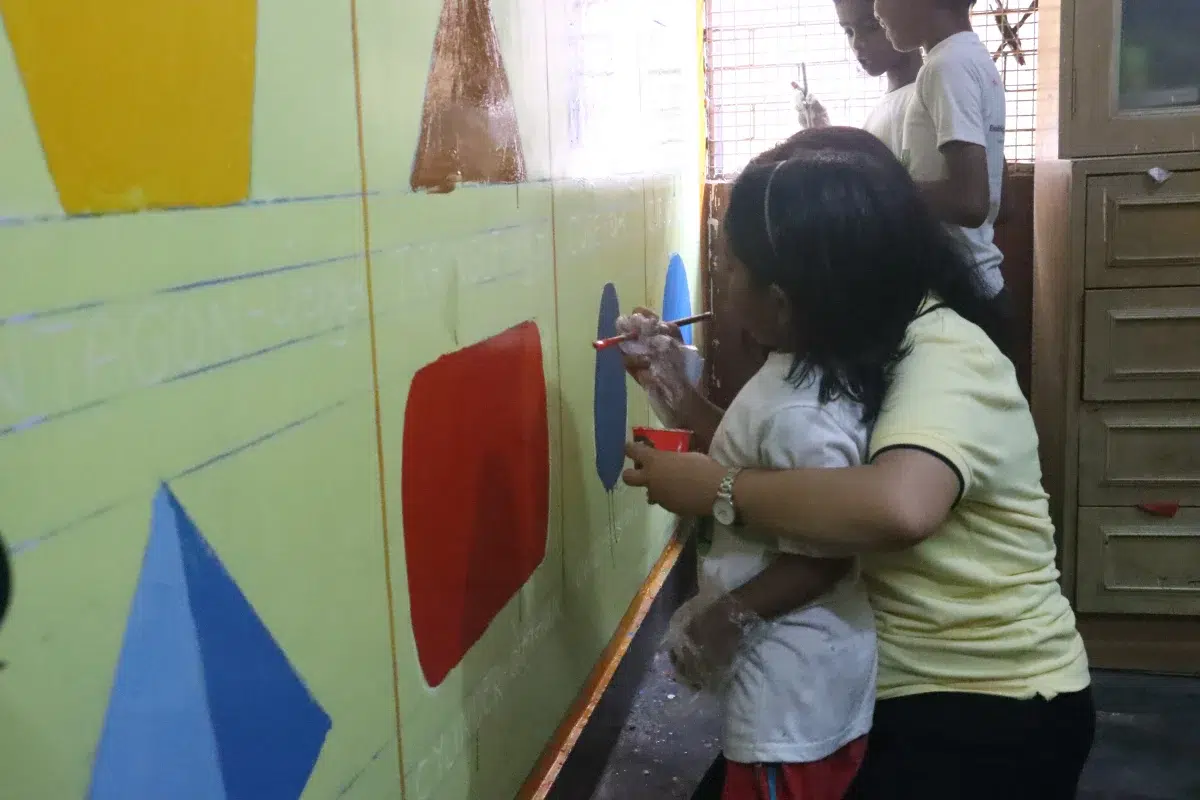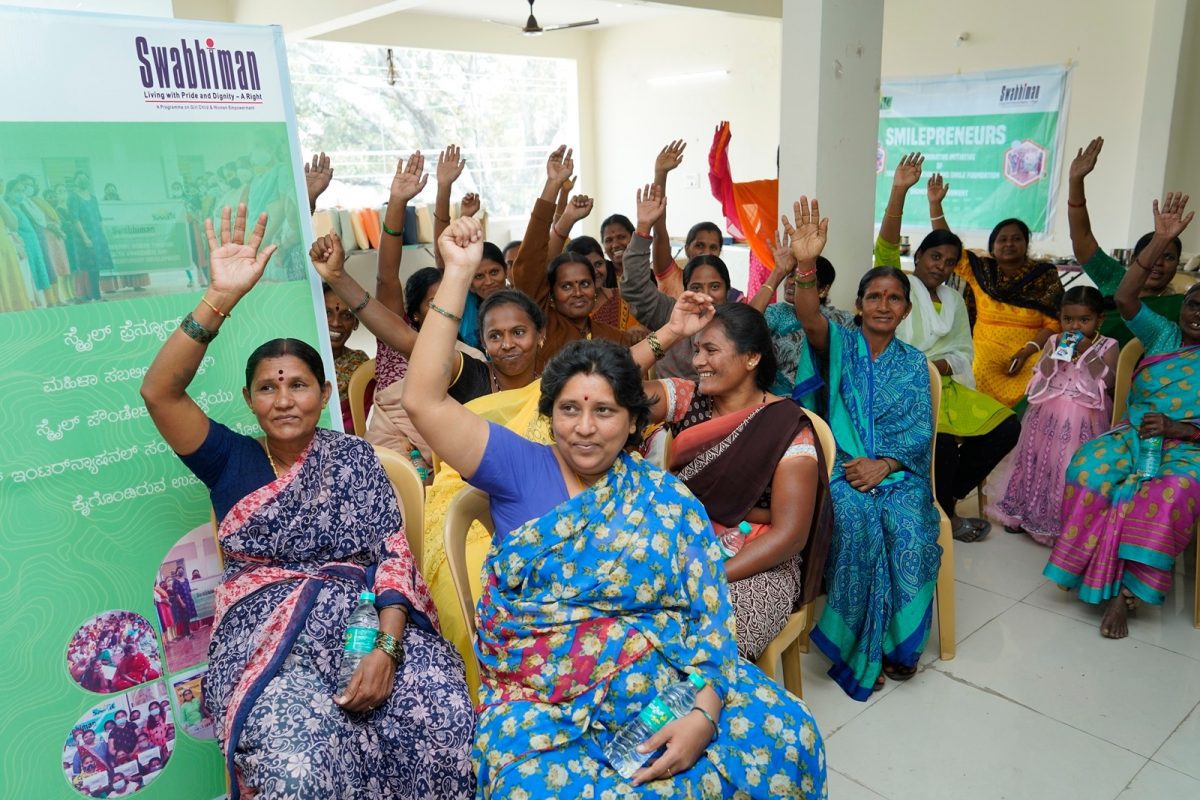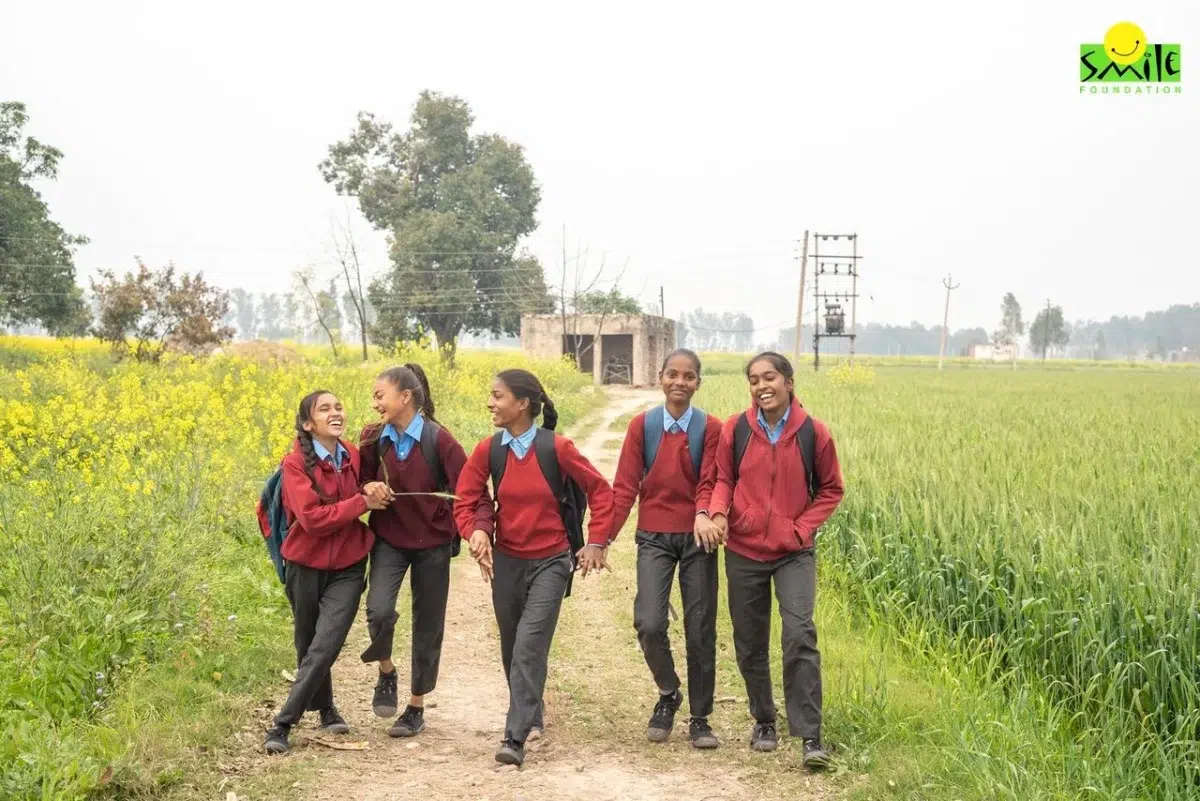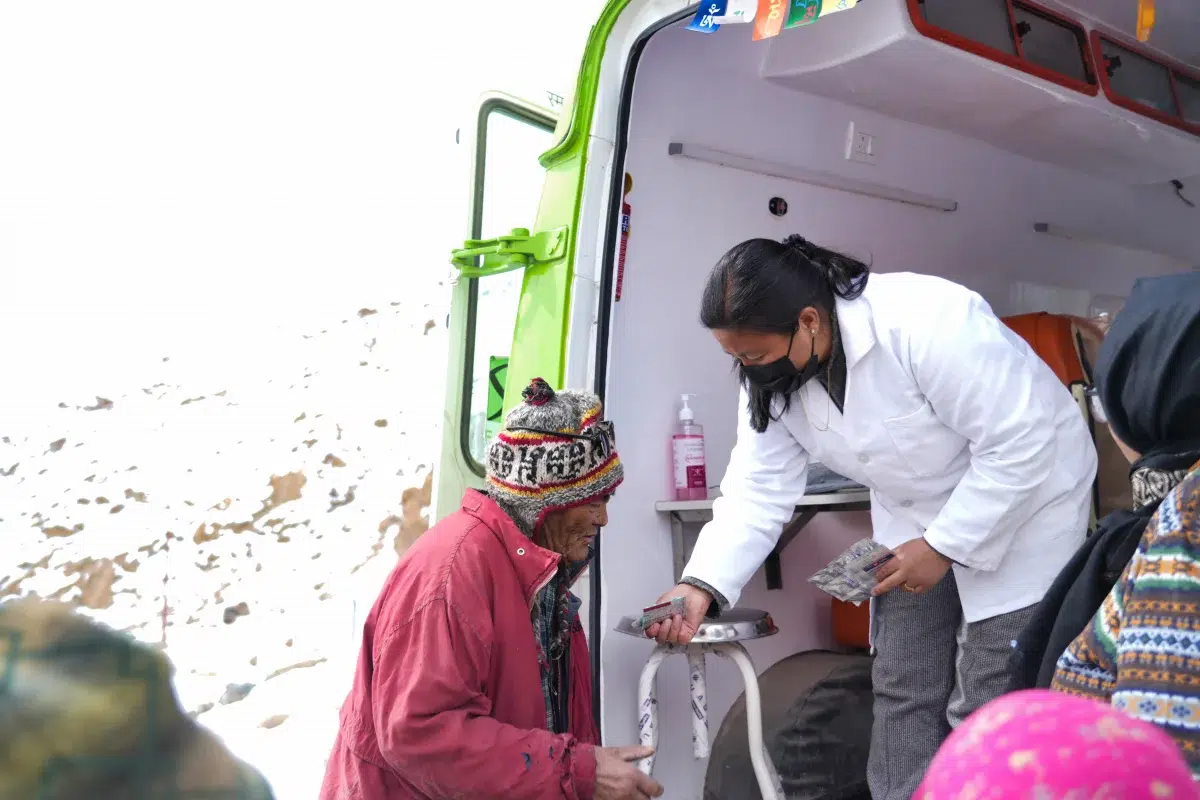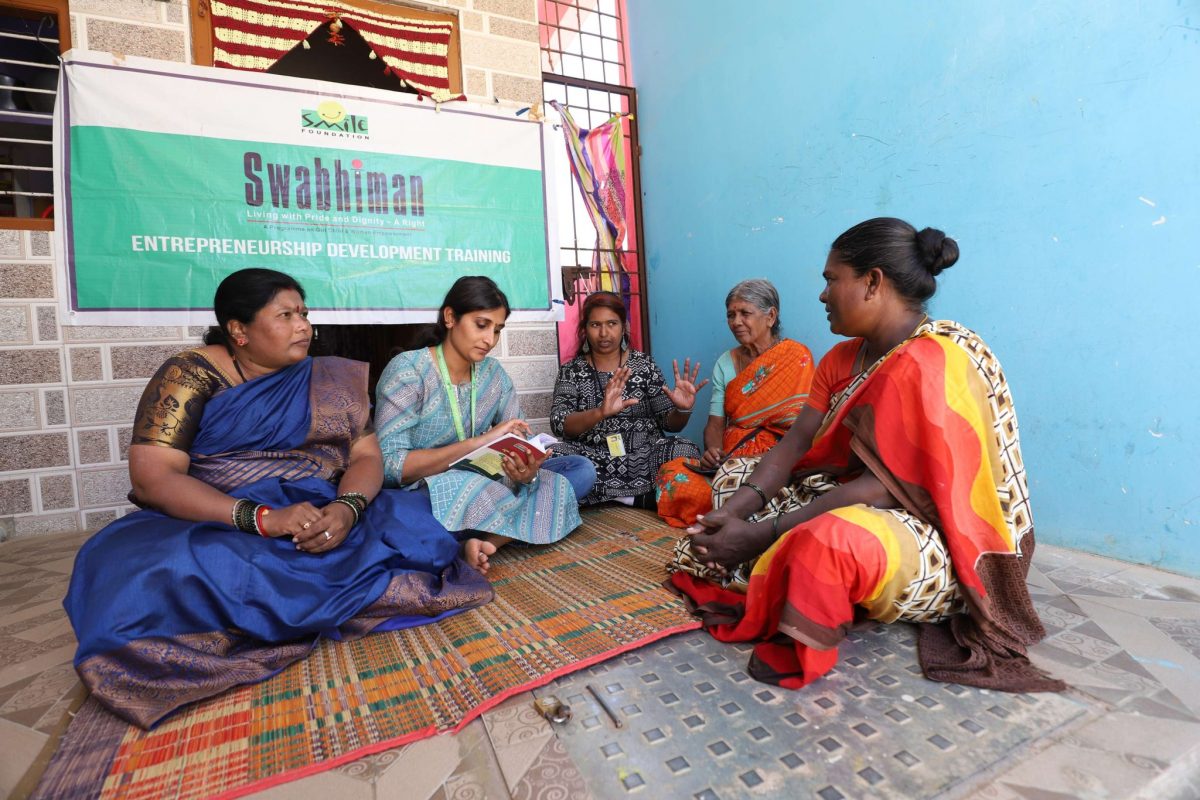Happiness is a feeling that cannot be confined to a single definition. Its beauty lies in the endless ways it can manifest — through small moments of joy, acts of kindness, and the simple act of a smile.
On World Happiness Day, Smile Foundation celebrates its ongoing commitment to spreading smiles across India through comprehensive interventions in education, health, women empowerment, and livelihood. The foundation believes that true happiness stems from the security of good health, access to quality education, and opportunities for economic independence.
Despite India’s progress, 25.01% of the population still lives below the poverty line (NITI Aayog, 2023), struggling to meet basic essentials. Additionally, 18% of women lack access to maternal healthcare (UNICEF, 2023). Addressing these gaps, Smile Foundation’s holistic approach supports vulnerable communities, fostering inclusive growth.
With the support of corporate and community partners, Smile Foundation transforms lives, nurturing self-reliance and resilience and therefore, this World Happiness Day, Smile reaffirms its dedication to building a healthier, happier India, where every smile is a step towards collective well-being.
The Lifecycle Approach: From Smile to Happiness
In a country as diverse as India, the meaning of happiness varies for each individual. For some, happiness is found in quality education; for others, it is the security of good health or the pride of financial independence. Yet, for millions in underserved regions, even the basics of survival can be a distant dream.
Understanding this reality, Smile Foundation’s Lifecycle Approach takes a holistic path to empowerment. Through interventions in education, healthcare, women’s empowerment, and livelihoods, we strive to ensure that every child and family has a fair chance to experience happiness.
To date, we have reached over 20,00,000 children and their families through 400 projects spread across 2,000 villages across India — each story adding a new chapter to the collective joy we nurture.
A Smile Begins with a Healthy Mother and Child
A mother’s joy is often reflected in the well-being of her child. Swabhiman, aligned with SDGs 3, 5, and 8, our flagship programme on good health of women and their financial stability. While, its one branch focuses on maternal and child health, ensuring that every mother has the knowledge, support, and resources she needs to give her child a healthy start in life through-.
- Community-Led Initiatives
Mothers’ Meetings foster peer learning among pregnant and lactating women, while Community Kitchen Gardens ensure sustainable access to nutritious food.
- Specialised Health Camps
Qualified professionals provide essential check-ups, screenings, and counselling, ensuring early detection and timely treatment.
- Reproductive & Child Health Support
Women receive crucial guidance on maternal and child healthcare, enhancing well-being and promoting informed decision-making.
Empowering Women Entrepreneurs
On the other hand, Swabhiman, also foster economic independence by equipping women with financial literacy, entrepreneurial skills, and business mentorship, it empowers them to pursue their aspirations and build secure futures.
In 2024 alone, 1,90,000 women across 6 states gained access to Swabhiman’s support, driving meaningful change in their communities.
Education: Unlocking the Joy of Learning
For a child, the opportunity to learn is often the greatest source of happiness. Mission Education, Smile Foundation’s education initiative, ensures that children from underserved communities do not lose their right to dream.
Our Impact in 2024:
- 1,60,000 children across 27 states gained access to quality education.
- STEM Education: Encouraging scientific thinking and problem-solving.
- Aligned with NEP 2020 and G-20 Goals: Promoting foundational literacy and numeracy.
- Digital Classrooms: Bridging the digital divide through solar-powered learning centers, educational tablets, and interactive tools, reaching over 15,000 children.
Every effort to take quality education through new age educational resources and classroom is to ensure that a space of curiosity and growth is created around children, ensuring that they can embrace their futures with confidence and hope.
Smiling Health: The Foundation of Happiness
A healthy body paves the way for a happy life. Through Smile on Wheels, our mobile healthcare programme, we ensure medical care reaches even the most remote communities.
Key Health Interventions:
- 105 Mobile Healthcare Units: Providing OPD services, diagnostic tests, and free medicines.
- Static Health Clinics: Offering dedicated care in rural regions.
- Telemedicine & Teleconsultation: Bridging the healthcare gap by connecting patients to urban specialists.
- Health Camps: Delivering critical medical assistance to underserved areas.
- Capacity Building: Training over 23,000 healthcare providers on crucial health topics.
Our partnerships with institutions like UPHC in Tamil Nadu and the District Hospital in Kullu further enhance the accessibility and quality of healthcare. Additionally, our Mobile Dental Care Units have provided oral healthcare to over 48,000 individuals, while our Transport Aarogyam Kendras- physiotherapy centers have brought essential health services to 71,000 transport workers.
The Joy of Livelihood: Empowering Through Employment
For many young people, a stable livelihood is the key to lasting happiness. Through our SteP , we provide skill training that empowers youth to build a sustainable future.
Programme Highlights:
- 74 Skill Training Centres across 8 states offering training in fields like BFSI, Digital Marketing, Healthcare, and Core Employability.
- Career Counselling and Industry Exposure: 800+ sessions conducted to prepare youth for the workforce.
- iTrain Project with Berger Paints: Upskilled over 1,00,000 painters across 25 states.
- Employment Partnerships: Collaborating with 400+ companies to ensure a 61% job placement rate.
Through these efforts, we see not just individuals thriving, but families and entire communities gaining newfound stability and hope.
Share a Smile- CSR Partnerships
A smile is more than an expression — it’s a reflection of dignity, resilience, and joy and therefore, this World Happiness Day, we celebrate the countless smiles we have nurtured through our commitment to holistic empowerment. Our collaborative partnerships with corporate leaders have been instrumental in uplifting lives and fostering happiness.
Together, we have brought transformative changes through interventions in education, healthcare, women empowerment, and livelihood, ensuring the welfare of all remains at the heart of our efforts. Every life touched, every opportunity created, and every dream realized has strengthened our determination to continue building a common shared goal — a socially and economically evolved society.
By aligning your Corporate Social Responsibility goals with Smile Foundation’s Lifecycle Approach, your organisation can contribute towards sustainable, lasting impact.
Connect with us and be a part of this meaningful journey towards collective well-being and happiness for all.




